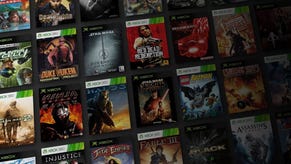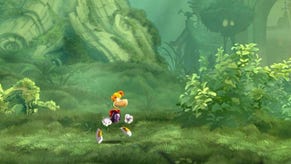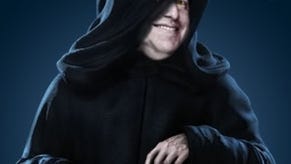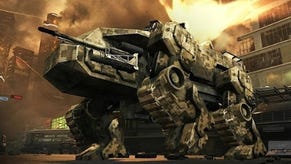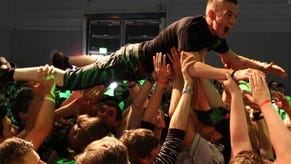Activision: You've got us all wrong
"We're not a big monolithic empire."
Publishing behemoth Activision is public enemy number one in many gamers' eyes, but according to one executive at the company, it has an undeserved reputation.
And it's due, according to head of developer relations Dan Winters, to the simple fact that Activision is number one – and an easy target.
"It's interesting, before our merger with Blizzard, becoming the number one publisher from a revenue perspective, we were always known as the warm and cuddly Activision; the scrappy, loveable number two," Winters told Eurogamer sister site GamesIndustry.biz in a new interview.
"As soon as we became the number one and we develop broader perspectives, perceptions started to change a little bit.
"We've worked very hard, and continue to do so, to let people know that, you know, we're the same guys, we really are. We haven't changed! I'm the same guy that I was before the merger, as are most of us. We're the same organisation. We haven't gone out and hired 3000 people. Our ability to scale and move quickly is the same as it was before. We're not this big, monolithic empire that's making decisions in a dark room, we're still very collaborative. We still have the same healthy respect and appreciation for talent that we ever did."
Activision shocked the gaming world when it announced the closure of its Guitar Hero business. UK-based DJ Hero developer Freestyle Games is currently in limbo.
That decision followed Activision's closure of Liverpool-based Project Gotham and Geometry Wars developer Bizarre Creations.
And last year Activision sacked Call of Duty creators Vince Zampella and Jason West. And who can forget CEO Bobby Kotick's infamous "we want to take the fun out of making games" joke?
According to Winters, though, Activision treats its developers with respect, and allows them to get on with the business of making games without too much interference.
"With all of our internal studios we have built a process, Bobby [Kotick, CEO] has really done this directly himself, built a process for the independent developer model, that allows them to retain their own culture, their own visibility, their own leadership, really to drive the stewards of the brands. I think those are important pieces of ownership, as it's loosely defined," he said.
"I think that's an important part of people coming in and having a passion and being able to exercise that passion as opposed to going in and being called publisher's name plus location. That takes some of the individuality away from that studio, and maybe some of their ability to personalise, to put in passion and ownership into their studio process. So I think we've done a good job of that through the years."
Last year Double Fine boss Tim Schafer described Kotick as a "dick".
The Costume Quest and Stacking developer was, of course, the subject of a bitter lawsuit with Activision over the launch of action game Brutal Legend.


